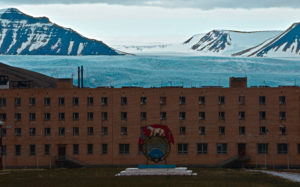The course is now over, and I have had two weeks to digest what an experience it was. Or more precisely, I would have had the time to digest it unless we had our own field work campaign at Svalbard right after the course. So here I am still. Looking over the misty Longyearbyen while writing this blog post.
My goals for the Plant Functional Trait Course #4 in Svalbard were to learn new scientific approaches and tools, to be inspired and to create new contacts around the globe. All the goals were reached, and the hopes fulfilled. Even exceeded. The two weeks in Longyearbyen were one of the most intensive ever but I think nobody counted working hours. All the sweat was worth of it. The concept of the course is brilliant as it is not only educational event but a real-life scientific project as well. That’s why all the people were so motivated. We knew that what we were doing matters.
Even though this was my first time in Svalbard the environment and conditions were nothing new to me. I knew what to expect. So, the novelty of these two weeks was the great people gathered together with a mission.
To be honest, I do not know if I learned anything about myself during the course, but I definitely learned a lot from and about others. Young scientists around me. Coordinating things, organizing and documenting data and research, collaborating between projects, and of course measure plant traits. Now I understand why some keep coming to the course again and again. Next course will be hold in South America. Should I participate? Probable. Should you? Definitely!
Among all the flowers, whales, birds and ecologists we met some people too in Svalbard. Really! We had a task to wander around the town and ask people to participate a survey. The survey was about how they think about climate change and do they already have some personal observations while being here in one of the most rapidly warming places.
The public perceptions of climate change in Svalbard were something what I expected. People are well up-to-date about the issue, but at the same time they acknowledge that their own lifestyle is not what is needed to fight back. Living in remote Arctic island is not going to be your first choice if you are trying to live as environmentally friendly as possible. So, I think many people have certain kind of conflict on their minds how to justify living here where many personal climate actions are impossible. Anyway, personally I admire that we have place like Svalbard were Arctic science is relatively easy to conduct and were people can really see the impacts of warming climate. Svalbard may work as an early warning sign about devastating climate driven changes in nature.
The few people I interviewed were probably not many enough to give me any brilliant ideas how to develop the survey and concept further. It is definitely important that we know what people know and how they think about climate issues. Additionally, Svalbard is such a unique place in many ways and what we did has certainly not been done here before.
Great experience!
Best wishes,
Pekka
